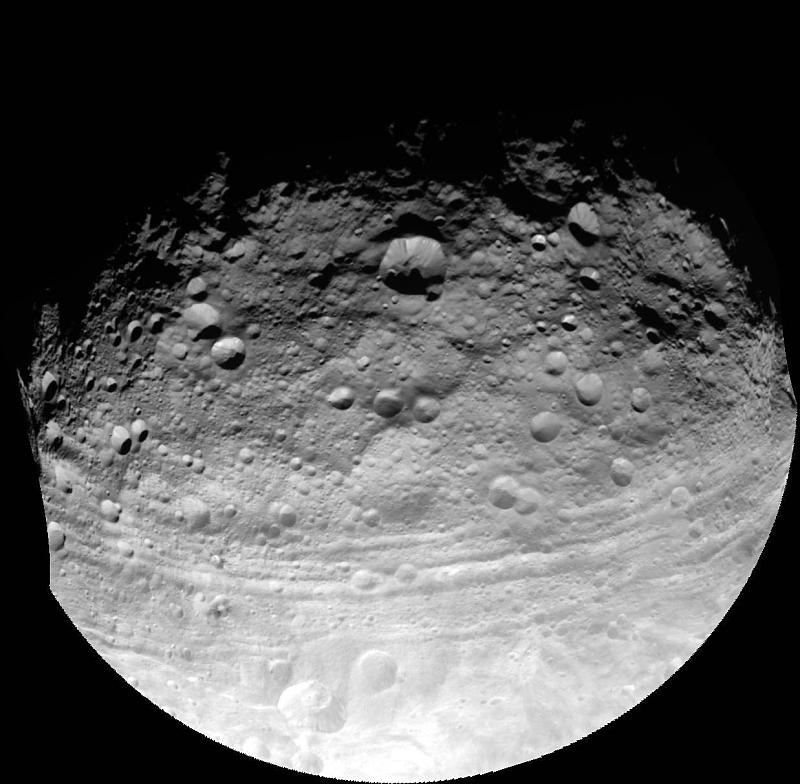
The full view of the giant asteroid Vesta is taken by NASA's Dawn spacecraft, September 27, 2021. /CFP
The full view of the giant asteroid Vesta is taken by NASA's Dawn spacecraft, September 27, 2021. /CFP
If you think observing a supermoon or meteoric show is too basic, then there's a stargazing event happening tonight, just for you!
At night, the asteroid Vesta will enter in opposition with the sun. The Earth will be closest to the line connecting the centers of the two bodies, which means the conditions for observing the asteroid is at it's best.
With an average diameter of 525 kilometers, Vesta is the brightest object of the main asteroid belt visible from Earth. It can be found close to Saturn. It is the second largest body in the asteroid belt by mass and volume as dwarf planet Ceres sits at the top.
It is also the first of the four largest asteroids to be visited by a spacecraft as NASA's Dawn spacecraft circled Vesta for over a year from July 2011 to September 2012. It then headed to dwarf planet Ceres.
At night, the asteroid is about 192.3 million kilometers away from Earth. It is theoretically within the reach of the naked eye in unpolluted surroundings but in reality, binoculars or telescopes can still come in handy for most stargazers.
The opposition of the planets with the sun is worth mentioning as they can have maximum visibility in the sky than ever.
At the moment, the Earth is closest to the celestial body and it turned its bright side to Earth with the greatest glow.
Vesta's discoverer Heinrich Wilhelm Olbers gave the chance of naming this asteroid to a German mathematician Carl Friedrich Gauss, who has computed its orbit. Its name Vesta is the goddess of the hearth and home from Roman mythology.
Quick Quiz about Vesta
How much do you know about it?
Is Vesta the largest body in the main asteroid belt?
1 / 5
Next
Is it the brightest asteroid from Earth?
2 / 5
Next
What percentage of the weight of Vesta is accounted of the total mass of all ateroids?
3 / 5
Next
Who named Vesta?
4 / 5
Next
Can we see Vesta from Earth with naked eye in the city?
5 / 5
Next
Your Score
0
/
5
Let your friends and the world know
Start it again

